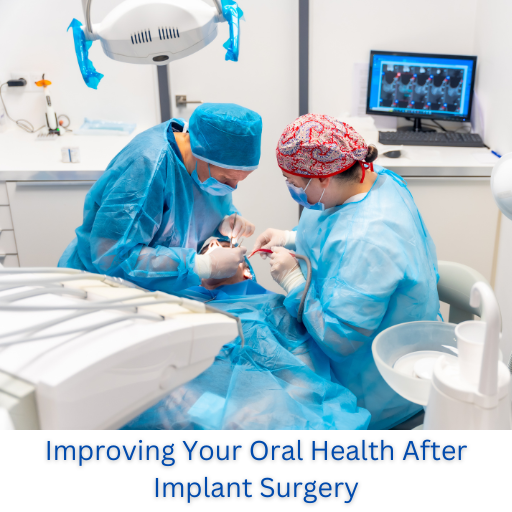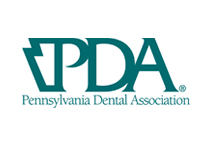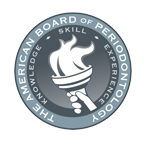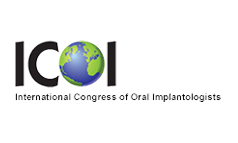
Introduction:
Dental implant surgery is a transformative procedure that can restore your smile and enhance your overall oral health. However, the success of implant surgery is not solely dependent on the procedure itself; post-operative care and maintenance play a crucial role in ensuring the longevity and health of your dental implants. In this article, we will explore essential tips and practices to help you improve your oral health after implant surgery, ensuring a successful and lasting outcome.
Summary
A. Understanding Dental Implants
B. The Importance of Post-Operative Care
1. Follow Your Dentist’s Instructions
C. Diet and Nutrition for Optimal Healing
1. Choose Soft and Nutrient-Rich Foods
D. Managing Discomfort and Swelling
2. Oral Care Products for Implants
3. Optimal Oral Hygiene Practices
5. Protecting Against Teeth Grinding
A. Understanding Dental Implants
Dental implants are sophisticated dental devices designed to replace missing teeth by serving as artificial tooth roots. Typically crafted from titanium, these implants are surgically inserted into the jawbone, where they fuse with the natural bone through a process called osseointegration. This strong bond provides a stable foundation for various dental prosthetics, such as crowns, bridges, or dentures, creating a reliable and durable solution for individuals with missing teeth. One of the key advantages of dental implants is their ability to mimic the function and appearance of natural teeth, offering a permanent and aesthetically pleasing alternative to traditional tooth replacement methods. This innovation has revolutionized dental care, providing patients with a reliable option that not only restores their smile but also enhances oral function and overall quality of life.
B. The Importance of Post-Operative Care
1. Follow Your Dentist’s Instructions: After undergoing dental implant surgery, adherence to the post-operative instructions provided by your dentist is paramount for ensuring optimal healing and minimizing the risk of complications. These guidelines typically include recommendations for oral hygiene practices, dietary restrictions, and the use of prescribed medications. It is crucial to meticulously follow any restrictions on chewing, eating, or engaging in strenuous physical activities during the initial healing period. Careful attention to oral hygiene, such as gentle brushing and avoiding irritants like tobacco, is essential to prevent infections and support the integration of the implant with the jawbone. Regular follow-up appointments with the dentist allow for monitoring the healing progress and addressing any concerns promptly. By strictly adhering to these post-operative instructions, patients contribute significantly to the success of the implant procedure, ensuring a smooth recovery and the long-term stability of their new dental restoration.
2. Maintaining Oral Hygiene: Maintaining impeccable oral hygiene is of utmost importance for the success of dental implants, particularly during the crucial healing phase. As the implant site recovers, strict adherence to a dentist-recommended gentle oral hygiene routine becomes essential to prevent infections and promote optimal healing. Dentists typically advise patients on specialized brushes and mouthwashes suitable for the delicate post-surgical environment. These tools aid in cleaning around the implant without causing undue stress on the healing tissues. Regular, gentle brushing, along with the use of prescribed mouthwashes, helps to reduce the risk of bacterial proliferation that could compromise the integration of the implant with the surrounding bone. By diligently following these tailored oral hygiene practices, patients not only contribute to the prevention of infections but also enhance the overall success and longevity of their dental implants. Regular check-ups with the dentist further ensure that the healing process is monitored closely and any potential issues are addressed promptly.
C. Diet and Nutrition for Optimal Healing
1. Choose Soft and Nutrient-Rich Foods: In the initial stages of recovery after dental implant surgery, it is advisable to choose soft foods that exert minimal pressure on the implant site, promoting a smooth healing process. Opting for softer textures reduces the risk of discomfort or irritation to the surgical area, allowing the implant to integrate seamlessly with the jawbone. Nutrient-rich foods play a crucial role during this recovery phase, supporting overall health and bolstering the body’s ability to heal. Incorporating a well-balanced diet that includes vitamins, minerals, and protein can enhance the healing process and contribute to the strength of the newly placed implant. Choosing foods that are easy to chew and do not require excessive force helps to avoid unnecessary strain on the healing tissues, fostering a more comfortable and successful recovery. It’s essential for patients to follow any dietary recommendations provided by their dentist to optimize the healing journey and ensure the long-term success of their dental implant.
2. Avoid Harmful Habits: Certain lifestyle habits, notably smoking and excessive alcohol consumption, can significantly impede the healing process of dental implants. Smoking introduces harmful chemicals into the body, restricting blood flow and impairing the immune system’s ability to combat infections, thereby hindering the integration of the implant with the jawbone. Additionally, the heat from smoking may irritate the surgical site. Excessive alcohol consumption can compromise the body’s healing mechanisms and increase the risk of complications. To ensure a successful recovery and long-term stability of dental implants, it is imperative for individuals to quit or at least reduce these detrimental habits. By making these positive lifestyle changes, patients not only enhance their overall health but also optimize the conditions for the implants to heal effectively, promoting a smoother and more successful integration process. Dentists often emphasize the importance of lifestyle modifications as integral components of post-implant surgery care, underscoring the significant role these changes play in achieving the best possible outcomes.
D. Managing Discomfort and Swelling
1. Use Prescribed Medications: After dental implant surgery, dentist may prescribe pain medications or antibiotics to manage discomfort and prevent infection. It’s crucial to adhere strictly to the prescribed dosage and schedule for these medications as directed by your dentist. Pain medications help alleviate post-operative discomfort, making the recovery process more manageable, while antibiotics are essential for minimizing the risk of infection at the implant site. If you encounter any unexpected or unusual side effects from the prescribed medications, it is imperative to promptly contact your dentist for guidance. Open communication with your dental care provider is vital to ensure your well-being throughout the recovery period. By following the prescribed medication regimen and promptly addressing any concerns or side effects, patients contribute to a more comfortable and complication-free healing process, promoting the overall success of the dental implant procedure. Regular check-ups with the dentist also provide opportunities to assess your progress and adjust the treatment plan as needed for optimal outcomes.
2. Cold Compresses and Rest: Applying cold compresses to the affected area is a valuable practice to alleviate swelling and discomfort following dental implant surgery. The cold temperature helps constrict blood vessels, reducing inflammation and providing relief. This simple and effective technique can be applied intermittently in the initial days post-surgery. Alongside cold compresses, getting plenty of rest is equally crucial for promoting a faster healing process. Adequate rest allows the body to divert energy toward the healing of the implant site and overall recovery. Avoiding strenuous activities during this period minimizes the risk of complications and supports the body’s natural healing mechanisms. Combining the use of cold compresses with sufficient rest constitutes a holistic approach to post-operative care, contributing to a more comfortable and expedited recovery after dental implant surgery. Patients are advised to follow their dentist’s specific recommendations for cold compress application and rest to optimize the healing experience and ensure the long-term success of their dental implants.
E. Long-Term Maintenance Tips
Once the initial healing phase is complete, maintaining long-term oral health becomes the primary focus. The following practices contribute to the overall success of dental implants:
1. Regular Dental Check-ups: Scheduling regular dental check-ups is essential for monitoring the health and stability of dental implants over time. These routine appointments provide an opportunity for the dentist to assess the condition of the implants, ensuring they remain secure and functional. During these check-ups, the dentist may conduct necessary cleanings to maintain oral hygiene and inspect the surrounding tissues for any signs of inflammation or infection. Regular follow-up visits also allow patients to discuss any concerns or issues they may be experiencing, fostering open communication between the patient and the dental care team. By staying proactive with these check-ups, potential problems can be identified and addressed early, contributing to the long-term success and durability of dental implants. Consistent dental monitoring reinforces the importance of ongoing oral care, ensuring that patients can enjoy the benefits of their dental implants for years to come.
2. Oral Care Products for Implants: Investing in oral care products specifically designed for individuals with dental implants is crucial for maintaining the integrity and longevity of the implants. Specialized toothbrushes with soft bristles and often angled designs are gentler on the implant site, ensuring effective cleaning without causing damage. Dental floss that is implant-friendly, such as unwaxed or implant-specific floss, helps clean between the implant and adjacent teeth without risking irritation. Additionally, using a mouthwash specifically formulated for dental implants can provide added protection against bacteria and plaque buildup. These tailored oral care products contribute to a comprehensive maintenance routine that supports the health and longevity of dental implants. Patients are advised to consult with their dentist for recommendations on the most suitable oral care products and to receive guidance on the proper techniques for maintaining optimal oral hygiene around their implants. Regular use of these specialized products enhances the overall care and protection of dental implants, promoting their sustained success.
3. Optimal Oral Hygiene Practices: Maintaining impeccable oral hygiene is paramount for the long-term success of dental implants. Brushing and flossing, traditional cornerstones of oral care, take on heightened significance in the context of implants. When brushing, it is essential to choose a soft-bristle toothbrush to avoid causing damage to the implant or the delicate surrounding tissues. Gentle, circular motions should be employed to clean all surfaces of the teeth and the implant itself. Equally crucial is the selection of a non-abrasive toothpaste, as harsh formulations can compromise the integrity of the implant and its attachment. Flossing remains indispensable, aiding in the removal of plaque and debris from the spaces between natural teeth and implants. In cases where space is limited, interdental brushes, specifically designed for implant care, prove highly effective. These slender brushes can access tight spaces, ensuring a thorough cleaning regimen that promotes gum health and guards against potential complications. Consistency in these oral hygiene practices not only preserves the aesthetics of your smile but also safeguards the stability and functionality of your dental implants over the years. Regular check-ups with your dentist will further refine your oral care routine, ensuring it aligns with the specific needs of your dental implants and overall oral health.
4. Avoiding Harmful Habits: Engaging in habits like smoking and excessive alcohol consumption can significantly compromise the success of dental implants. Smoking, in particular, poses a multifaceted threat to implant health. The chemicals in tobacco smoke impede blood flow, slowing down the body’s natural healing processes. This compromised blood flow not only delays the initial healing phase after implant surgery but also impedes the crucial process of osseointegration, where the implant fuses with the jawbone. Moreover, smoking increases the risk of infection and inflammation at the implant site, heightening the potential for complications. Beyond smoking, excessive alcohol consumption can also contribute to implant failure. Alcohol can weaken the immune system, making the body less adept at warding off infections, a key concern in the post-implantation period. Furthermore, alcohol abuse can negatively impact bone density, diminishing the foundation essential for implant stability. For those seeking long-term success with dental implants, eliminating or minimizing these detrimental habits is not merely a matter of general health but a crucial step in ensuring the optimal healing and integration of the implants into the oral structure. Consulting with healthcare professionals for guidance on cessation strategies can significantly enhance the prospects of implant success.
5. Protecting Against Teeth Grinding: For individuals grappling with bruxism, the habit of teeth grinding, proactive communication with your dentist is imperative. Bruxism can exert undue pressure on both natural teeth and dental implants, potentially compromising their structural integrity over time. Upon being informed of your tendency to grind your teeth, your dentist may recommend the use of a nightguard. This custom-fitted oral appliance serves as a protective barrier, cushioning the impact of grinding forces during sleep. By creating a physical barrier between the upper and lower teeth, a nightguard mitigates the wear and tear on the enamel of natural teeth and shields the surfaces of dental implants from excessive stress. This preventive measure not only safeguards against potential damage but also contributes to the overall longevity and stability of both natural and artificial teeth. Regular consultations with your dentist allow for the adjustment and monitoring of the nightguard, ensuring it remains effective in mitigating the detrimental effects of bruxism, ultimately preserving the integrity of your dental implants and promoting a healthier, more sustainable oral environment.
Frequently Asked Questions (FAQs):
Q1: How long does it take for dental implants to heal?
A1: The healing time for dental implants varies from person to person. In general, it takes about 3 to 6 months for the implants to fully integrate with the jawbone.
Q2: Can I resume normal eating habits after implant surgery?
A2: Initially, it’s recommended to stick to soft foods to avoid putting excessive pressure on the implant site. As the healing progresses, you can gradually reintroduce normal eating habits.
Q3: Is there a risk of dental implant failure?
A3: While dental implant failure is rare, it can occur. Following proper post-operative care, maintaining oral hygiene, and attending regular dental check-ups significantly reduce the risk of implant failure.
Q4: Are dental implants suitable for everyone?
A4: Dental implants are a viable option for many individuals, but not everyone is a candidate. Factors such as overall health, jawbone density, and oral hygiene habits play a role in determining eligibility.
Conclusion:
The journey to sustained oral health after dental implant surgery is a multifaceted endeavor that extends beyond the transformative procedure itself. Dental implants, constructed with precision and designed to mimic natural teeth, offer a lasting solution, but their success hinges on meticulous post-operative care and long-term maintenance. From adhering to specific instructions for optimal healing to embracing a soft and nutrient-rich diet, avoiding harmful habits, and employing preventive measures like nightguards for teeth grinding, each aspect contributes to the overall success of dental implants. Regular dental check-ups, specialized oral care products, and consistent oral hygiene practices further solidify the foundation for enduring implant stability. By prioritizing these elements and maintaining open communication with dental professionals, individuals not only ensure the longevity and vitality of their dental implants but also lay the groundwork for sustained oral health, fostering confidence in their radiant smiles and improved overall well-being.
Discover a trove of information and resources dedicated to dental care, oral health, and related topics by exploring our website at https://premierperiodonticspa.com/. Whether you are seeking comprehensive insights into maintaining oral well-being or have specific inquiries, our website serves as a valuable hub for all your dental needs. From educational articles to frequently asked questions, we aim to empower you with the knowledge necessary for informed decisions about your oral health. For personalized assistance or to schedule a consultation, don’t hesitate to reach out to our dedicated team at (267) 908-4867. Your smile is our top priority, and we are steadfast in our commitment to providing you with the information and support needed to make your dental experience both comfortable and successful. Trust us to prioritize your oral health journey, and we eagerly anticipate being a partner in your quest for a healthy and radiant smile.








